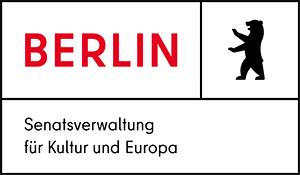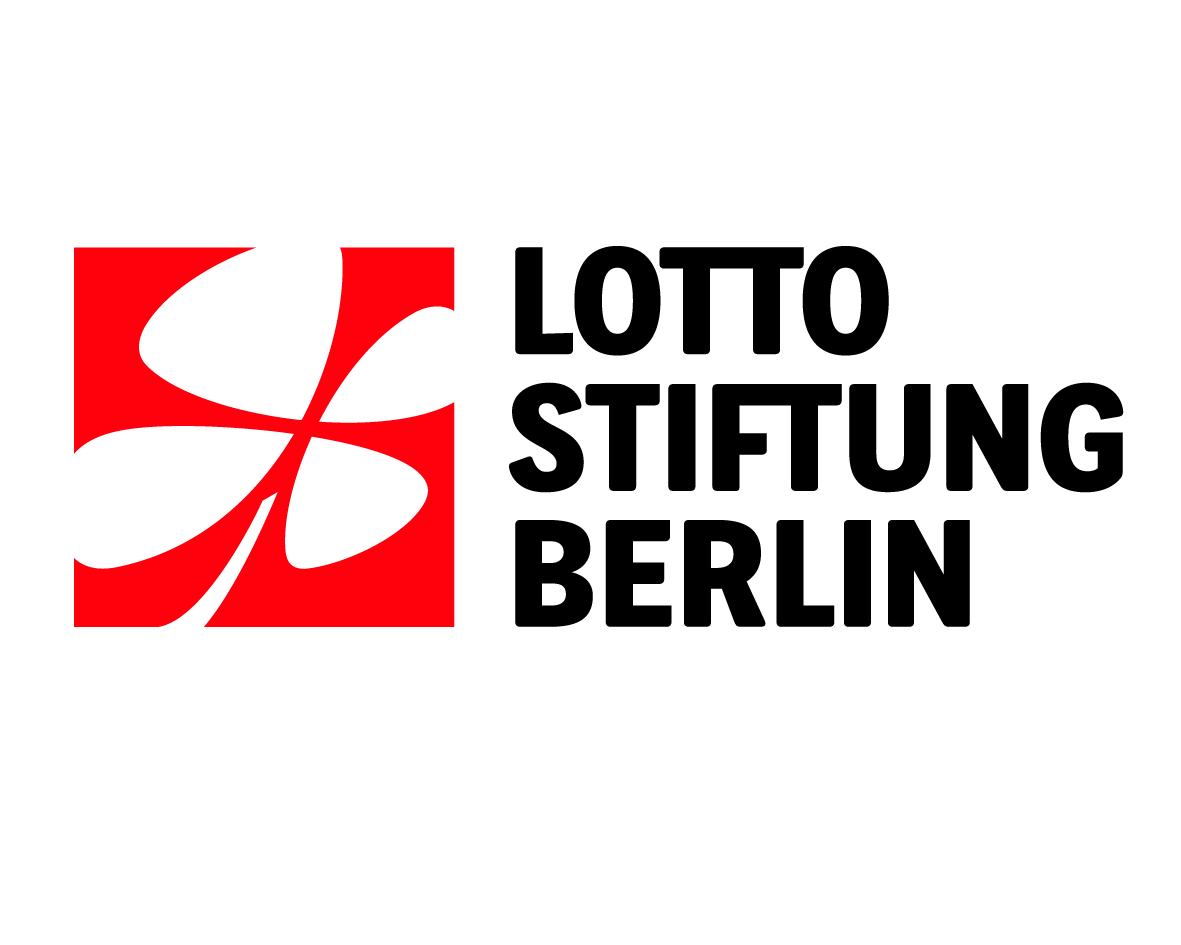25 November 2022–9 January 2023
Artists
Martin Elmar de Haan / Anonym, Douglas Boatwright, Frauke Boggasch, Vlad Brăteanu, Margret Steenblock / ClaraRosa, Karolina Dreit / Kristina Dreit / Anna Trzpis-McLean (Arbeitszyklus Working Class Daughters), Margit Czenki für „Der goldene Engel –Pro System“ mit „Die Mission – künstlerische Maßnahmen gegen die Kälte e.V.“, Verena Brakonier / Greta Granderath / Jivan Frenster, Paul Goesch, Hannah Höch, Matthias Horn, Franziska König, Liang Luscombe, Silke Nowak, Verena Pfisterer, Jelka Plate, Karin Powser, Anna Schapiro, Arthur Segal, Marion Lebbe / Caroline Sebilleau / Emmanuel Simon, Christian Specht, Gabriele Stötzer, Mika Svolos, Hito Steyerl / Giorgi Gago Gagoshidze / Miloš Trakilović, Gülbin Ünlü, Anna-Lena Wenzel, Norbert Witzgall
Project group
Frauke Boggasch, Silke Nowak, Anna Schapiro, Anna-Lena Wenzel, Norbert Witzgall
The project is a cooperation between nGbK and the Berlinische Galerie.
Extreme class differences collide within the field of art. The promise of an art-world career is often accompanied by lived realities and conditions of production entrenched in precarity; behind the glamorous image of the artist lurk shrouded poverty and relations of dependence. The exhibition Class Issues – Art Production In and Out of Precarity explores how strongly one’s background influences access and careers, thematizing the ways in which art production is largely dependent on economic, social, and cultural capital.
To this end, Class Issues brings together works from the collection of the Berlinische Galerie with contemporary positions—from drawings and paintings to installation, video, and audio works. Along five thematic strands, works have been selected that illuminate experiences of structural disadvantages while negotiating questions posed by the presence of classism within the field of art.
In doing so, classism is considered alongside racism, sexism, and ableism, adopting an intersectional perspective in recognition of the fact that different forms of discrimination are often interlocked. The consequences of such experiences of discrimination can negatively impact mental health or manifest themselves in self-doubt. Liang Luscombe’s fabulative video satire illustrates these connections: as a way out of debt, the protagonists consider looting, selling their own teeth, or fleeing to a Caribbean tax haven.
Classism and Access: When one’s background impedes access to educational institutions, exhibition opportunities, or funding, classism is usually at play. This has as much to do with a lack of financial resources as it does with having insufficient contacts or knowledge required to write grant applications. Yet, funding is a crucial factor for an artist’s career; Vlad Brăteanu names its importance on his banner declaring “An artist without funding is no artist”.
Conditions of Production: How can one make art when neither money nor space is available? The exhibition presents works that negotiate and document the precarious working and living conditions within the field of art. For example, many artists are limited in format and materials according to the availability of resources—or lack thereof. Meanwhile, other bodies of work perpetually remain in the proposal stage. Projects by Douglas Boatwright and Verena Pfisterer make the act of working in and out of precarity tangible: when the printer malfunctions, the “misprint” literally indexes the lack of resources; when there are no means to realize the expansive installation, a small-format concept sketch is all that remains. The exhibition concept deliberately includes the wall labels, providing information about the actual production costs of some of the works, the artist’s parents’ occupation, applications for funding, or the number of jobs the artist had to take on in order to support themselves.
Art Market: The field of art is characterized by a paradoxical simultaneity. While the works of a few artists fetch astronomical prices, others work under precarious conditions and finance themselves through jobs at minimum-wage level. The spokesperson for Berlin’s professional association of visual artists (bbk), Frauke Boggasch, shows the absurdities of life in the art scene via recordings of her long-awaited fellowship and residency in Paris, where her privileges, albeit short-lived, clash with the lack of access for people living on the streets.
Areas of Neglect: Many problems remain unvoiced out of shame. For example, (old-age) poverty is a taboo subject in an art world that often sees itself as critical and progressive. It even affected Hannah Höch, whose works are some of the most prominent within the collection of the Berlinische Galerie, and it continues to impact numerous artists living today, as witnessed in letters from artists over sixty who applied for funding during the Corona pandemic. Also on view are works by artists without academic training and those with physical or mental impairments—positions that, due to the barriers of entry, often remain invisible.
Options for Action: The negotiation of class issues leads to questions surrounding potential courses of action that could counter classism. This includes efforts to make production conditions transparent; for example, the members of La Buse choose to only work collectively, positioning themselves against the idealized image of the individualized artist via a communal practice of anonymized production.
Events:
Sunday, November 13, 2022, 11:00–18:00
nGbK event space (shiftedfrom Stadtwerkstatt)
Workshop “Class Matters” with Francis Seeck
The term classism refers to discrimination on the basis of class origin or class affiliation, limiting access to culture, housing, educational attainment, health care, agency, participation, recognition, and moneyThe workshop deals with this often forgotten form of discrimination. How does classism manifest itself in the cultural sphere and what can we do against it on a practical level?
Francis Seeck, born in 1987 in East Berlin, is a cultural anthropologist, author and anti-discrimination trainer. As the child of an unemployed, single mother, Seeck experienced the effects of class society at an early age. Today Seeck teaches and researches on classism and social justice after holding a substitute professorship in sociology and social work sciences at the Hochschule Neubrandenburg, now as a post-doc at HU Berlin. In 2020 Seeck published the anthology Solidarisch gegen Klassismus with Brigitte Theißl. In spring 2022, the book on classism Zugang verwehrt was published by Atrium.
Thursday, November 24, 2022, 19:00
Opening “Class Issues – Art Production In and Out of Precarity”
with speeches by Thomas Köhler (BG) / Klaus Lederer (Senator for Culture and Europe) / Annette Maechtel (nGbK) / nGbK project group Klassenfragen
and a temporary installation by Karolina Dreit / Kristina Dreit / Anna Trzpis-McLean (Arbeitszyklus Working Class Daughters)
Sunday, December 4, 2022, 15:00 (de/en)
Berlinische Galerie Auditorium
Panel discussion “Paradoxien des Künstler_innendaseins”with the project group Class Issues, Marina Schulze, and a performance by MYSTI
Moderation: Jacqueline Saki Aslan
The point of departure for the exhibition Class Issues relates to the various shifting roles within the art field that the members of its project group have held — from artists, assistants and mediators, to trade unionists. Hoping for funding is as much a part of their everyday life as is financing their artistic work through precarious jobs. Their awareness of the self-chosen nature of this situation is accompanied by their concrete demands for more equal opportunities, transparency and redistribution.
The event begins with a performance by MYSTI entitled art is someone else’s illness, a critical look at the function of art and on working conditions in the art world. Members of the project group will further discuss these topics with Marina Schulze, who will fortify the conversation with an intergenerational perspective.
Monday, December 5, 2022, 14:00–15:00 (de)
Exhibition space Berlinische Galerie
Guided tour with the project group Class Issues
Thursday, December 15, 2022, 17:00 (de)
Exhibition space Berlinische Galerie
Guided tour with the project group Class Issues (for nGbK members)
Sunday, January 8, 2023, 15:00 (de)
Berlinische Galerie Auditorium
Panel discussion “Praxen der Umverteilung” with Verena Issel, Mareice Kaiser, Martina Witte, and a contribution by Jelka Plate
Moderation: Jacqueline Saki Aslan
Within the field of art, precariously living artists meet rich collectors, and artists with an educated, bourgeois background meet those from working-class families. At the same time, individual backgrounds are rarely discussed, since it is ostensibly only the quality of the art that should count. Yet the fact remains that who has access to funding, who inherits, or who has attained cultural capital decidedly affects the conditions under which one works and how or whether someone becomes visible.
The event will begin with a contribution by Jelka Plate: in her work etwas verdienen [earning something], she describes how coming into the privilege of inheritance disturbed her own self-understanding as an artist. Afterwards, the question of how privilege can be redistributed will be discussed. Guests include the artist Verena Issel, who demands more transparency in financial matters; Mareice Kaiser, who in her current book writes about people with very little money, people with a lot of money, and people who fall somewhere in between; as well as Martina Witte, who instigated a redistribution account within the autonomous “Prololesben” [Prole-Lesbian] initiative in the 1990s.
Monday, January 9, 2023
14:00–15:00
Guided tour with the project group Class Issues (en)
19:00
Online panel discussion “Navigating an Unjust System” with Douglas Boatwright, Vlad Brăteanu, Franziska König, Liang Luscombe and a contribution by Michael Annoff (de/en)
Moderation: Jacqueline Saki Aslan
It’s a paradox: as an artist, you move within a system that is built on inequalities. One can criticize it while profiting from it all the same. In his contribution, Michael Anhoff names this paradox and calls for an intersectional perspective, looking also beyond the field of art. In a subsequent conversation, the artists Douglas Boatwright, Vlad Brăteanu, Franziska König, and Liang Luscombe share the knowledge they have gained in their experiences: by moving to another country or transitioning to another class, they are particularly sensitized to inclusion and exclusion.
Financed by


